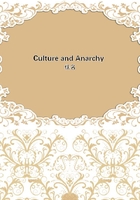
第46章
To a world stricken with moral enervation Christianity offered its spectacle of an inspired self-sacrifice; to men who refused themselves nothing, it showed one who refused himself everything;--' my Saviour banished joy! ' says George Herbert. When the alma Venus, the life-giving and joy-giving power of nature, so fondly cherished by the Pagan world, could not save her followers from self-dissatisfaction and ennui, the severe words of the apostle came bracingly and refreshingly: 'Let no man deceive you with vain words, for because of these things cometh the wrath of God upon the children of disobedience.' Through age after age and generation after generation, our race, or all that part of our race which was most living and progressive, was baptized into a death; and endeavoured, by suffering in the flesh, to cease from sin. Of this endeavour, the animating labours and afflictions of early Christianity, the touching asceticism of mediaeval Christianity, are the great historical manifestations. Literary monuments of it, each in its own way incomparable, remain in the Epistles of St.
Paul, in St. Augustine's Confessions, and in the two original and simplest books of the Imitation. 110 Of two disciplines laying their main stress, the one, on clear intelligence, the other, on firm obedience; the one, on comprehensively knowing the grounds of one's duty, the other, on diligently practicing it; the one, on taking all possible care (to use Bishop Wilson's words again) that the light we have be not darkness, the other, that according to the best light we have we diligently walk,--the priority naturally belongs to that discipline which braces all man's moral powers, and founds for him an indispensable basis of character. And, therefore, it is justly said of the Jewish people, who were charged with setting powerfully forth that side of the divine order to which the words conscience and self-conquest point, that they were 'entrusted with the oracles of God;' as it is justly said of Christianity, which followed Judaism and which set forth this side with a much deeper effectiveness and a much wider influence, that the wisdom of the old Pagan world was foolishness compared to it. No words of devotion and admiration can be too strong to render thanks to these beneficent forces which have so borne forward humanity in its appointed work of coming to the knowledge and possession of itself; above all, in those great moments when their action was the wholesomest and the most necessary.
11 But the evolution of these forces, separately and in themselves, is not the whole evolution of humanity,--their single history is not the whole history of man; whereas their admirers are always apt to make it stand for the whole history. Hebraism and Hellenism are, neither of them, the law of human development, as their admirers are prone to make them; they are, each of them, contributions to human development,--august contributions, invaluable contributions; and each showing itself to us more august, more invaluable, more preponderant over the other, according to the moment in which we take them, and the relation in which we stand to them. The nations of our modern world, children of that immense and salutary movement which broke up the Pagan world, inevitably stand to Hellenism in a relation which dwarfs it, and to Hebraism in a relation which magnifies it. They are inevitably prone to take Hebraism as the law of human development, and not as simply a contribution to it, however precious. And yet the lesson must perforce be learned, that the human spirit is wider than the most priceless of the forces which bear it onward, and that to the whole development of man Hebraism itself is, like Hellenism, but a contribution.
12 Perhaps we may help ourselves to see this clearer by an illustration drawn from the treatment of a single great idea which has profoundly engaged the human spirit, and has given it eminent opportunities for showing its nobleness and energy. It surely must be perceived that the idea of immortality, as this idea rises in its generality before the human spirit, is something grander, truer, and more satisfying, than it is in the particular forms by which St. Paul, in the famous fifteenth chapter of the Epistle to the Corinthians, and Plato, in the Phaedo, endeavour to develop and establish it. Surely we cannot but feel, that the argumentation with which the Hebrew apostle goes about to expound this great idea is, after all, confused and inconclusive; and that the reasoning, drawn from analogies of likeness and equality, which is employed upon it by the Greek philosopher, is over-subtle and sterile. Above and beyond the inadequate solutions which Hebraism and Hellenism here attempt, extends the immense and august problem itself, and the human spirit which gave birth to it.
And this single illustration may suggest to us how the same thing happens in other cases also.
13 But meanwhile, by alternations of Hebraism and Hellenism, of a man's intellectual and moral impulses, of the effort to see things as they really are, and the effort to win peace by self-conquest, the human spirit proceeds; and each of these two forces has its appointed hours of culmination and seasons of rule. As the great movement of Christianity was a triumph of Hebraism and man's moral impulses, so the great movement which goes by the name of the Renascence 2 was an uprising and re-instatement of man's intellectual impulses and of Hellenism. We in England, the devoted children of Protestantism, chiefly know the Renascence by its subordinate and secondary side of the Reformation.